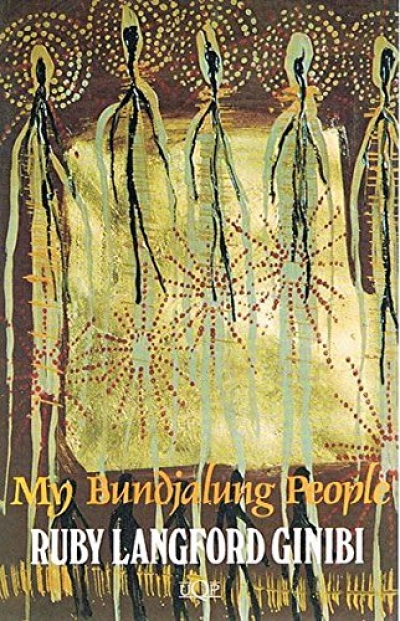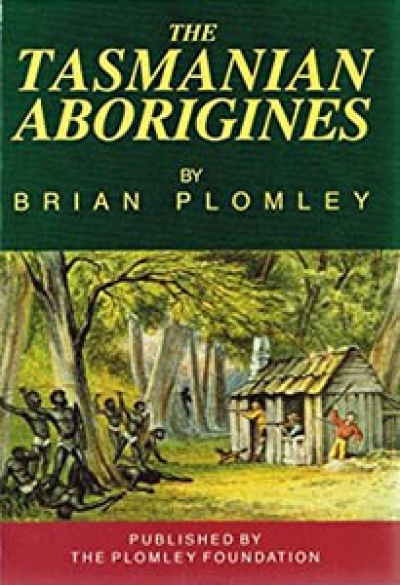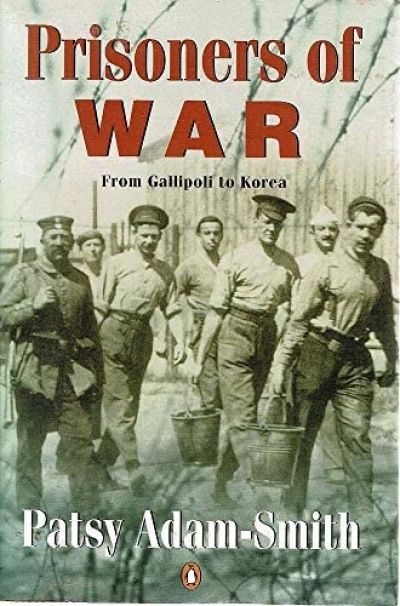Australian History
Contemporary Aboriginal writing, like Aboriginal art, is now so diverse that is impossible to talk about any one particular style. John Muk Muk Burke, whose first novel, Bridge of Triangles, has just been published, recently told a Sydney seminar for Aboriginal writers that they were no longer writing from the viewpoint of victims. He said they were survivors rising from the ashes of the invasion like the phoenix. Burke’s own novel is multi-layered, poetic and visually strong, with a structure informed by his study of world literature.
... (read more)EcCentric Visions: ReConstructing Australia by Gaile McGregor
Tourism is, I suppose, the quintessential postmodern activity – I’ve been to Bali too. This particular tourist, Gaile McGregor, described as a ‘Canadian itinerant scholar’, offers us EcCentric Visions as part of a trilogy; the previous two titles featured Canada and the United States. The link is, she says, that all three are ‘post-frontier societies’. It’s a definition that depends on whether or not you’ve got past the post.
... (read more)The Encyclopedia of Aboriginal Australia edited by David Horton
The general editor introduces the Encyclopaedia of Aboriginal Australia with a number of challenging statements. He does not want it to be ‘just another encyclopaedia’. He has made it his policy, he writes, to have no ‘academic-style text references, linguists and other students of Aboriginal studies rarely appear, and there are no “studies suggest that” ... This encyclopaedia also aims to tum the usual convention on its head by presenting an Australia with no white people except as they impinge on Aboriginal society.’
... (read more)This is a sad, short book – sad in more ways than one. It is the last work of this century’s greatest authority on the Tasmanian Aborigines. It is the distillation of sixty years of detailed and diverse work. And it is deeply flawed.
Brian Plomley, who died earlier this year, was best known for his doorstop volumes on the original Tasmanians (The Friendly Mission and Weep in Silence). For these we owe Plomley a great debt. He dedicated decades of his life to getting inside the mind of G.A. Robinson, the so-called Conciliator of Tasmania’s last tribal Aborigines. His insights into that man and his era, and the thoroughness of his work on the thinly-spread evidence of pre-European Aboriginal culture in Tasmania, are unique. They would lead us to expect the present slim volume to be a rich distillation. Instead the undoubted riches are contaminated by errors both of fact and judgement.
... (read more)Doc Evatt: Patriot, Internationalist, Fighter and Scholar by Ken Buckley, Barbara Dale and Wayne Reynolds
In his foreword to Doc Evatt, Jim Hagan claims that this is the fourth full-length biography of Dr. H.V. Evatt and suggests that only one other Australian politician has scored as many. Leaving aside the fact that Allan Dalziel never pretended that his book, Evatt the Enigma, was anything more than a profile of the man he worked with for twenty years, these assertions create the misleading impression that a substantial body of literature on Evatt exists. Academics have long lamented the lack of a comprehensive and scholarly biography of one of Australia’s most important and complex judicial and political figures. The very recent appearance of Peter Crockett’s Evatt: A life, characterised by wide-ranging research but a crude psychoanalytical approach, chronic disorganisation, a weakness in the analysis of international affairs, and a lack of historical perspective, disappointed in many ways.
... (read more)In October 1993 I picked up a copy of Window, the ‘Weekly Hong Kong Newsmagazine with Exclusive Coverage of China’ and found in the Business and Finance section a Profile, ‘Bob Hawke’s Eagle Eye in Asia’. There was a photograph of the Eagle, who described himself as a ‘business commentator and facilitator of increased enmeshment in Asia’. This was certainly a confident label. Reading on I discovered that Hawke saw himself as ‘overwhelmingly responsible for the vision of Australia as part of Asia’. He told the reporter than in his first days as Prime Minister he had used the phrase, ‘our future lies in enmeshment with Asia’, a sentiment that was at first greeted sceptically, but now, Hawke claimed, ‘no one questions the wisdom and correctness of Hawke’s vision. No one.’ Emphatic stuff, claiming sole credit for long term shifts in opinion and cultural practice, while dismissing the doubters. If that was all there was to my theme, this would be a very brief history indeed.
... (read more)Sojourners: The epic story of China’s centuries-old relationship with Australia by Eric Rolls
Mr Rolls has written an extraordinarily detailed history of the Chinese in Australia, interspersed with much additional related and unrelated matter. It is indeed a labour of love, written over a period of some twenty years, and the author has uncovered a large amount of fascinating and amazing information not readily available elsewhere. Much of this new material relates to the vibrant popular culture the Chinese brought with them: their food, cricket fighting, cock fighting, and other sorts of fairly harmless gambling; their diseases, living conditions and relations with their non-Chinese neighbours. A certain amount of the book concerns immigration acts and other forms of discrimination, of course, but the stronger impression one gets is a more positive one: the Chinese as hard workers and major contributors to Australian life.
... (read more)Prisoners of War: From Gallipoli to Korea by Patsy Adam-Smith
The word history means many different things to different people. But generally speaking it entails an attempt by an author to explain, or make sense of, the past. That is, the historian gathers together the material, the evidence as it were, and from that draws a number of conclusions which we as readers are expected to believe. Prisoners of War, by Patsy Adam-Smith, encompassing three wars, from Gallipoli to Korea, is not that kind of history.
... (read more)Prime Ministers’ Wives by Diane Langmore & Suffrage to Sufferance by Janine Haines
Diane Langmore has given us a fascinating account of the lives of ten women, from Pattie Deakin to Hazel Hawke. She has explored the background of each, the attraction which ended in marriage to a politically ambitious man, and the adaptation of each to her husband’s obsessive struggle for the most powerful political post in Australia. Her analysis of the women’s relationship to their partners throws light on the personalities and attitudes of the men chosen by Australians to lead the nation. For the early sketches Langmore has drawn on diaries, newspaper reports, and the opinions of contemporaries; for the latter she has been able to add to her sources the opinions and musings, given in interviews, of the women themselves. Langmore writes with clarity and style, never belittling or patronising her subjects, and her sympathetic viewpoint enables the reader to appreciate the varied personalities of her subjects. She does not, however, fall into the trap of assuming that the public face of each woman is always the private one.
... (read more)Living in a New Country: History, travelling and language by Paul Carter
In the mid-1980s, Paul Carter and I used to meet and talk from time to time. On a hot day just before the Ash Wednesday fires, I mentioned to Paul that I was becoming disappointed with the book of fiction that I was then writing. Paul said much in reply to this, but all I remembered afterwards was his opening sentence: ‘The only material any writer has is his thoughts and feelings.’ What Paul Carter said was not new to me, but I have often felt grateful to him for having said it to me just at that time.
... (read more)








